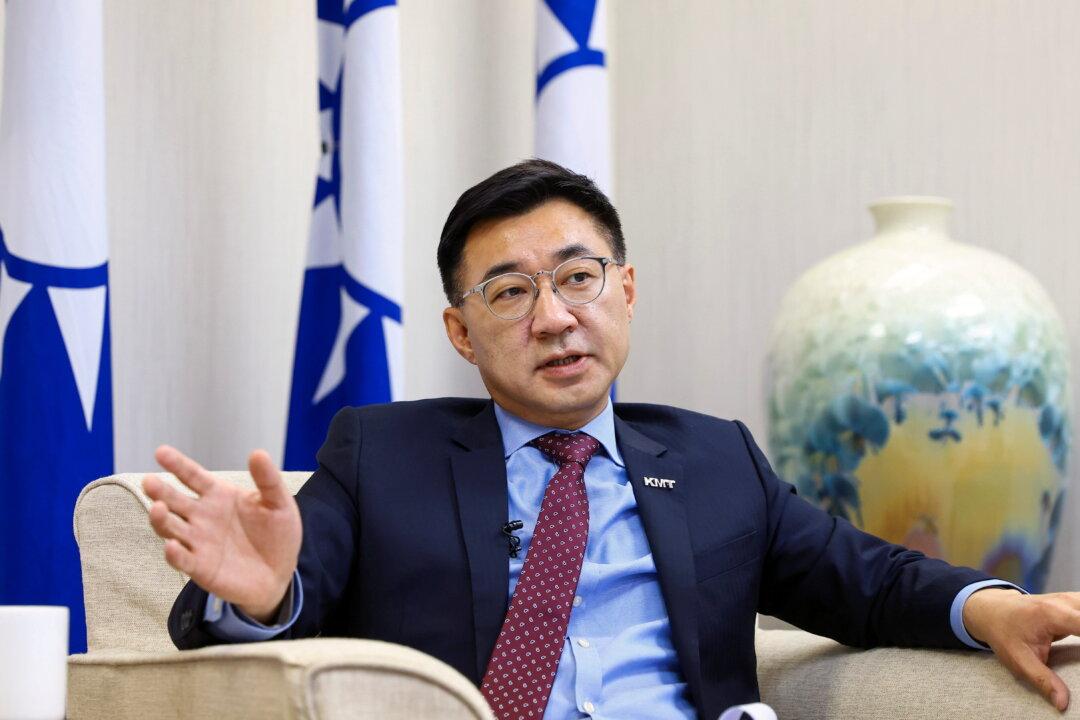TAIPEI—The leader of Taiwan’s main opposition party the Kuomintang (KMT) said on Tuesday he is in no rush to travel to China to meet President Xi Jinping, and that Beijing’s proposals to get Taiwan to accept Communist rule had “no market” on the island.
The KMT ruled China before retreating to Taiwan at the end of a civil war with the Communists in 1949. While ties across the Taiwan Strait have improved dramatically in the last three decades, Beijing continues to claim Taiwan as its own territory.





